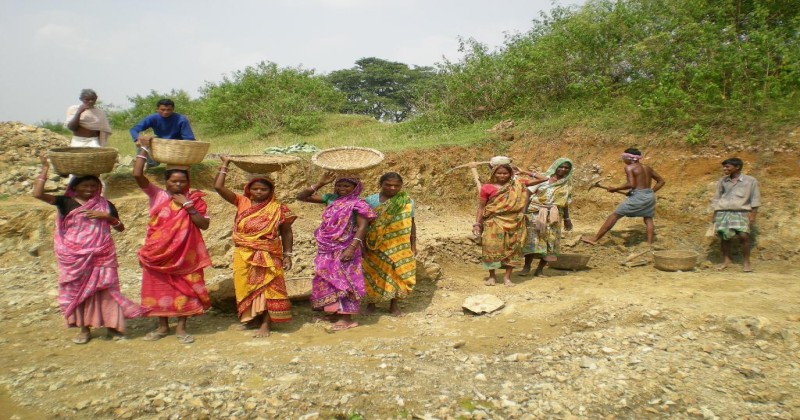
The Economic Survey presented by Finance Minister Nirmala Sitharaman noted that the Mahatma Gandhi National Rural Employment Guarantee Scheme (MGNREGS) demand is not a true indicator of rural distress. The report highlighted significant variations in the scheme’s performance across states, emphasizing that a state’s institutional capacity plays a crucial role in effectively utilizing MGNREGS funds. Despite numerous studies, a definitive cause for these uneven outcomes remains elusive, though some reports suggest MGNREGS demand may reflect rural distress. However, data trends do not consistently show that states with higher poverty and unemployment rates use more funds or generate more employment per day under the scheme.
The survey further mentioned that there might be a correlation between MGNREGS fund usage and reduced unemployment. However, calculations show little correlation between fund usage and rural unemployment rates, indicating that MGNREGS work demand does not directly correlate with increased rural distress at a micro level. States with lower per-capita incomes and higher poverty levels often have weaker institutions, leading to fewer funds tapped per work executed and less employment generated per capita for the rural poor.
The survey pointed out that in FY24, Tamil Nadu, with less than 1% of the country’s poor population, accounted for nearly 15% of all MGNREGS funds released, and Kerala, with only 0.1% of the poor population, used almost 4% of the funds. These two states generated 51 crore person-days of employment. In contrast, Bihar and UP, with about 45% of the poor population, accounted for only 17% of MGNREGS funds and generated 53 crore person-days of employment. Nikhil Dey of NREGA Sangharsh Morcha noted that the survey reflects better administrative capabilities in states like Tamil Nadu and Kerala, while the lower fund utilization in Bihar and UP highlights their poor administrative delivery, not the absence of rural distress.

Post Your Comments